MercoPress. South Atlantic News Agency
Tag: British Antarctic Survey
-
Friday, October 17th 2025 - 00:59 UTC
British Antarctic Survey (BAS) has officially launched its 2025/26 Antarctic field season
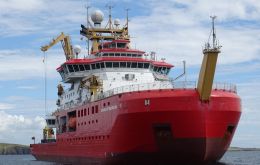
October 16 marked the arrival of the first aircraft at Rothera Research Station and the departure of the Falklands-flagged RRS Sir David Attenborough from the UK. The new season brings a full schedule of ambitious science, deep-field exploration, and major infrastructure milestones across the Antarctic and sub-Antarctic.
-
Tuesday, June 10th 2025 - 08:27 UTC
Join the British Antarctic Survey at Seawork 2025, Southampton 10/12 June

The British Antarctic Survey (BAS) is exhibiting at Europe’s commercial marine and workboat exhibition, Seawork 2025,– and is inviting seafarers, cadets, and maritime professionals to come and discover what it takes to support science at the ends of the Earth.
-
Wednesday, March 5th 2025 - 09:55 UTC
BAS invites to the Cambridge Festival, “Join us for an Antarctic Adventure”
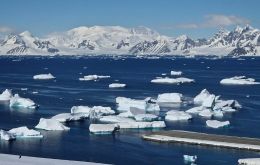
Come along to ‘Antarctic Adventure – Explore the Frozen Frontier’ – a talk aimed at anyone over 7 years old by British Antarctic Survey (BAS) polar scientist Kate Hendry and marine biologist Dr. Helen Scales.
-
Friday, January 3rd 2025 - 10:16 UTC
Boric South Pole bound after weather problems ruled out
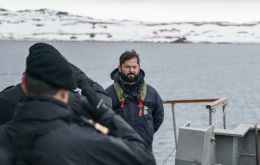
Chilean President Gabriel Boric Font's trip to the South Pole was confirmed Thursday by the La Moneda Palace in Santiago after its feasibility had been questioned due to poor weather. The journey between Jan. 2 and 4, will include other officials as well as a scientific team to tour the Union Glacier Joint Scientific Polar Station and the Amundsen-Scott Base.
-
Wednesday, September 25th 2024 - 08:43 UTC
UK Antarctic Science Conference at BAS, Cambridge

The British Antarctic Survey, BAS, has announced that the UK Antarctic Science Conference 2024 will take place at the British Antarctic Survey in Cambridge, 1st – 3rd October 2024. The meeting aims to bring together all in the UK who are involved in Antarctic research or the support of Antarctic research.
-
Thursday, September 5th 2024 - 07:53 UTC
BAS announces UK Antarctic Science Conference at Cambridge
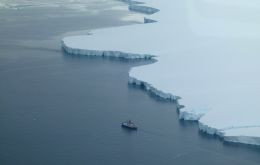
British Antarctic Survey has announced that the UK Antarctic Science Conference 2024 will take place at the British Antarctic Survey in Cambridge, 1st – 3rd October 2024. The meeting aims to bring together all in the UK who are involved in Antarctic research or the support of Antarctic research.
-
Monday, April 29th 2024 - 14:38 UTC
Emperor penguin colonies in Antarctica suffer as sea-ice diminishes
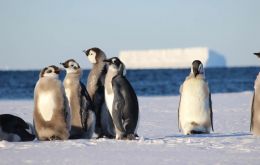
Record low levels of Antarctic sea ice in late 2023 resulted in breeding failures in a fifth of the continent’s emperor penguin colonies, according to a new study from the British Antarctic Survey (BAS).
-
Saturday, December 30th 2023 - 07:04 UTC
Octopus DNA helps to discover evolution of the West Antarctic Ice Sheet collapse
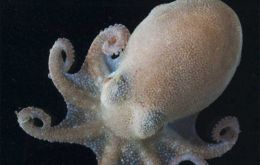
Scientists, including from British Antarctic Survey, have used octopus DNA to discover that the West Antarctic Ice Sheet (WAIS) likely collapsed during the Last Interglacial period around 120,000 years ago – when the global temperatures were similar to today.
-
Saturday, July 29th 2023 - 11:01 UTC
RRS Sir David Attenborough preparing for its first Antarctic science cruise

The British Antarctic Survey is reporting that further trials are underway on the Falkland Islands-flagged RRS Sir David Attenborough in preparation for its first Antarctic science cruise.
-
Thursday, May 18th 2023 - 11:09 UTC
BAS ends 2022/23 Antarctic field season with over sixty science projects
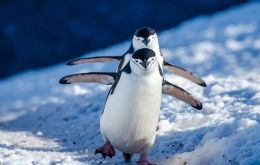
The British Antarctic Survey 2022/23 Antarctic field season has ended, marking the conclusion of another successful year of scientific exploration in one of the world’s most remote and challenging environments.
